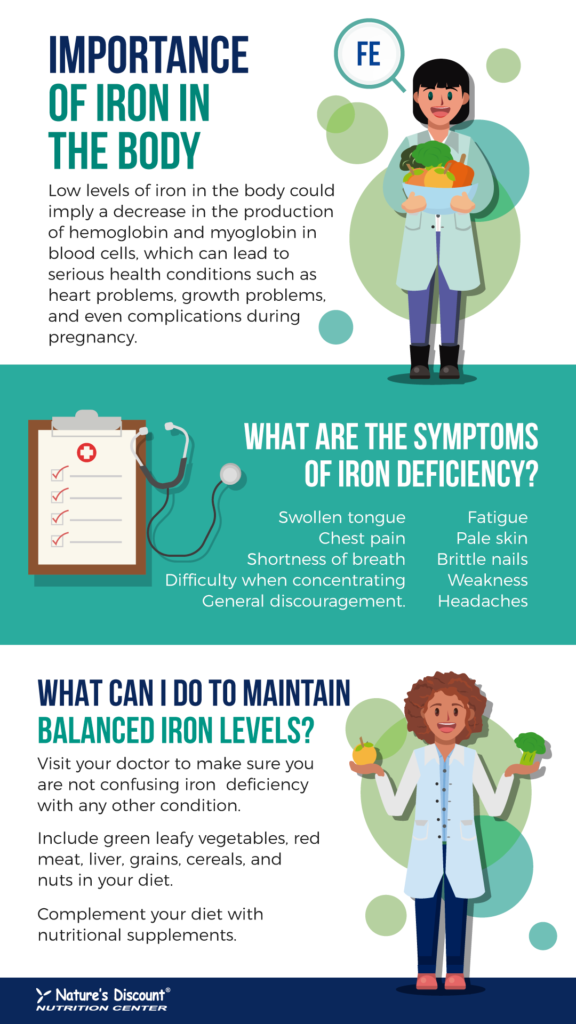Iron is a mineral found abundantly in hemoglobin. Hemoglobin is the protein in red blood cells that facilitates the transport of oxygen and carbon dioxide in and out of the body.
Have You Noticed How Blood Has a Reddish Tone?
Iron is responsible for that. It is present in myoglobin, a protein found in the muscles. This protein is also responsible for transporting oxygen through the body.
Low iron levels could lead to a decrease in hemoglobin and myoglobin production in blood cells, which can lead to serious health conditions such as heart problems, growth problems, and even complications during pregnancy.
But… How Can I Know if I Have Iron Deficiency?
When you have low iron levels you can suffer from, fatigue, pale skin, brittle nails, weakness, headaches, swollen tongue, chest pain, and shortness of breath. Other symptoms include difficulty concentrating and general discouragement.
Depending on how low your iron levels are, you may find yourself suffering from a loss of appetite for regular foods, but at the same time, craving unusual substances such as soil or starch.
What Should You Do When This Happens?
First things first. You must visit your doctor so they can examine you and assess if you are suffering from iron deficiency. This way you can make sure you are not confusing low iron levels with any other condition.
You can start tackling the problem with a balanced diet that includes green leafy vegetables, protein, grains, and cereals. This will make sure your diet is rich in iron.
However, children and adolescents of growing age, people suffering from blood loss, some chronic diseases, and even menstruating women, might need to complement their balanced diet with nutritional supplements.
Ideally, you should take iron supplements before eating so that food does not hinder the body’s ability to absorb it, or you might experience secondary symptoms such as mild stomach pain.
If you want to improve the absorption of this compound, take it with drinks that contain vitamin C, such as orange juice, or with foods rich in iron, such as broccoli and tomato.
Using Iron Supplements
The use of iron supplements has proven useful against fatigue even in people who do not suffer from this iron deficiency.
Remember that an iron-rich diet complemented with some supplements can help you maintain appropriate iron levels. Your body, skin, nails, and breathing will notice the benefits of stable iron levels.




